The mysterious cruise-ship death of Jackie Kastrinelis
A 24-year-old singer is found dead in bed on a cruise ship near Darwin. Why do some in the NT want this awkward case to disappear?
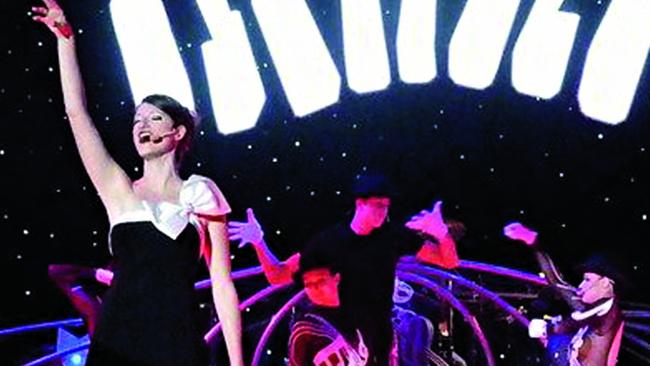
Jackie Kastrinelis was excited about exploring her first Australian city so when her fellow crew members on the cruise ship Seven Seas Voyager threw a “beach party” to celebrate their arrival in Darwin the next day, the American dressed for the part. She donned her bathers, threw on white shorts and a white beach top and walked to the crew bar around 10pm to order a rum and Coke. It was the last costume change the 24-year-old cruise ship singer and entertainer would ever make. The Seven Seas Voyager was still 300km northeast of Darwin, a city she would never see.
The next morning a crew member heard Jackie’s alarm clock ringing in her cabin, number 3119. Jackie was found dead in bed, lying on her back. It was 10.25am on February 3, 2013. “[We] were told that she looked like an angel,” fellow cast member Courtney Brady told Jackie’s parents, Mike and Kathy Kastrinelis.
More than four years on, the question of what, or who, killed the talented and seemingly healthy performer in the prime of her life remains unanswered. “We lost our child and now we have been put through this,” Kathy says as she flicks through three giant folders of documents in their home in the small town of Groveland, Massachusetts. “All we want to know is what killed our daughter. It is unconscionable what they have put us through.”
The folders outline the heartbreaking journey and sea of red tape that the Kastrinelis family has endured as they plead with police, politicians and the coroner on the other side of the world to re-examine Jackie’s death. The piles of emails and letters exchanged between the family and the authorities in Darwin provide a persuasive case for their firm belief that the investigation into their daughter’s death and its aftermath was botched. Now it seems that some people in the Northern Territory would like to see the awkward case of Jackie Kastrinelis disappear altogether.
On her last night alive, Jackie ordered four half-shot Captain Morgan rum and Cokes over the course of the evening as she mingled with her fellow musical cast members in the crew bar, a place to which they would regularly escape from their small cabins. She was tired after a busy day rehearsing with the 10-member cast for the Cirque Voyager show, due to begin in a few days. As the lead singer, Jackie was the star musical attraction for the 700 passengers on the Seven Seas Voyager. The former Massachusetts fine arts graduate with a major in musical theatre had joined Regent Seven Seas Cruises almost two years earlier to hone her performance skills before trying out for Broadway in New York.
She was, in the words of her employer, “a ray of sunshine, a life force and a beautiful person”. Adds Kathy: “On the ship she was a very open person, she often had her door propped open in her cabin so people could say hello and she looked on her cast as her family. She would organise bingo and games in the crew lounge; she really cared about everybody on the ship and wanted to keep them happy.” Jackie was a favourite among the ship’s crew and had many friends, although she also missed her parents and her two younger brothers, Michael and Andrew.
“We Skyped with her the night before she died,” says Kathy. “She was fine and was happy to be going ashore in Darwin in a few days. She said she loved her cast, was excited about the show and was in good spirits.”
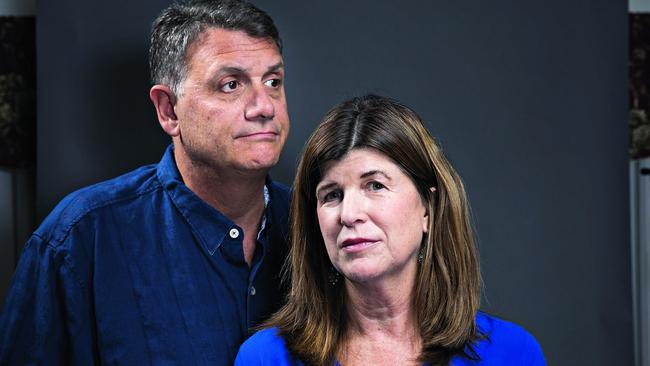
According to the coroner’s report, Jackie was “not overly intoxicated and was talking and acting in a normal way through the night” while at the crew bar. Her friends say she was not drunk. Eventually everyone at the bar left, leaving Jackie alone talking with an Estonian engineer named Jaanus. “She left the bar with [Jaanus] at about 1.40am, when they parted company and went to their respective rooms,” the coroner’s report states. “They were seen by [a fellow crew member, a Ukrainian saxophone player called Roman]. She entered her room at 1.41am, which was the last recorded access to her room.”
When Jackie was found dead in her bed the next morning the ship was arriving in Darwin so the investigation fell to Northern Territory police, who boarded the ship and examined the scene. They saw no sign of a struggle or violent death, and perhaps as a result they did not investigate as thoroughly as they might otherwise have done. The police report to the coroner stated that the sheets and pillow cases Jackie was lying on were not tested for DNA; nor was DNA taken from the first responders to help identify or eliminate the unknown male DNA which was found on the outside of Jackie’s underwear. No fingerprint analysis was done in the cabin.
The ship was locked down briefly in Darwin while an autopsy and toxicology report was performed the following day. No dangerous drugs were found in Jackie’s system and there was a negligible alcohol reading. “There was no observed evidence to suggest suffocation through smothering or some other type of traumatic episode [and] there was no observed evidence suggesting Jaquelyn had been injected with any substance,” police told the coroner. She had not been raped. Even so, police interviewed three men on the ship and took their DNA. They tried to match their accounts of their movements on the night with the electronic key records that indicate when someone enters a cabin.
One of those interviewed was Daniel, a fellow crew member with whom Jackie had consensual sex about 30 hours before she died. Another was the engineer Jaanus, who said goodnight to her. The door swipe records show Jaanus’s last entry into his room was 12.50am, contrary to his own claims and that of the witness Roman that he left Jackie at about 1.40am.
The records for Roman show him coming in and out of his room three times after Jackie had gone into her room at 1.41am. He told police he went to the bar area because he couldn’t get wi-fi in his room but there is no other explanation for his movements at 1.50am, 2.28am and finally at 3.13am. Police did not check the contents of his computer. There was no CCTV footage of the hallways outside the cabins.
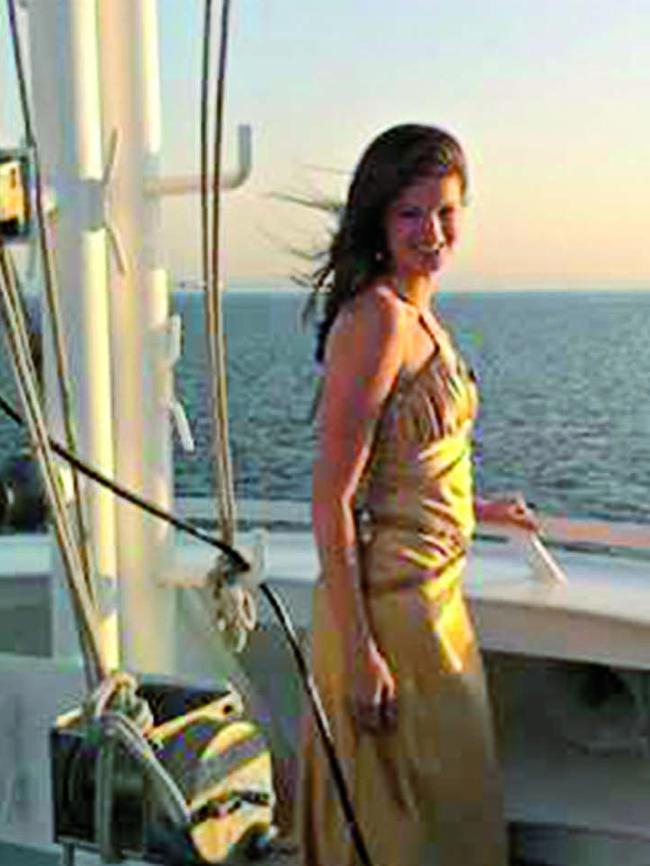
In his first interview with police, Roman did not volunteer that he had been in a relationship with Jackie four months earlier during another cruise and that he was upset that she had broken up with him afterwards. When police conducted a second interview to ask him why he didn’t tell them about that, he replied; “I dunno, I — I was not thinking that it was really, really important that we were dating.” He then admitted to police that he was jealous when he saw Jackie in the company of Jaanus outside her room.
“[Roman] states that he saw Jaquelyn and [Jaanus] leaving the crew bar at around 1.40am. [Roman] admits this makes him a little jealous,” the police report says. “[Roman] states he hears [sic] and saw them part company with each party going their separate way. He claims he returned to his cabin.” Police did not pay much attention to the inconsistencies unearthed during the investigation because crew members would often wedge their doors open, or sometimes would be let into shared cabins by a roommate. “Police found it was impossible to determine with any accuracy how long anybody might remain in their room,” the coroner stated.
The autopsy could find no obvious medical explanation for Jackie’s sudden death. In the absence of answers, it concluded that this healthy 24-year-old died from “sudden unexplained death syndrome”, an extremely rare and often genetically carried disorder that causes people to die suddenly, often in their sleep.
With the cruise ship company agitating to get the ship back to sea and with no immediate prosecutable case against any of three men interviewed by police, the Seven Seas Voyager sailed away, leaving Jackie’s body in Darwin.
On the evening of February 3, 2013, Mike and Kathy Kastrinelis were out watching a local band when Mike got a call from his son Michael, telling them to come home immediately. “We walked in the door and he just said, ‘Jackie’s dead’,” recalls Kathy. “You immediately think something bad must have happened,” she says. “I mean, a 24-year-old kid who had just completed a full medical a month earlier for her job doesn’t just go to sleep and not wake up.”
The captain of the ship, Gianmario Sanguineti, wrote in a letter to Mike and Kathy: “Jackie went to bed, fell asleep and never woke up. There was no pain or suffering — Angels go that way. She was a wonderful person and we miss her terribly.”
Groveland, a community of 6000 people in northern Massachusetts, closed ranks around the shattered Kastrinelis family, whose three children had lived in the town all their life. It was midwinter and no US airline was willing to fly Jackie’s body back to the US for fear that a blizzard might delay delivery, forcing them to look after her remains. But Qantas agreed to take her home. When Jackie’s body arrived at JFK airport, a massive storm hit. “I will never forget how one of the Qantas employees at JFK said to me he was going to take a Qantas van and drive through the blizzard to deliver Jackie to us,” says Mike. “And he did.” Mike sent a heartfelt thankyou note to Qantas customer service but never heard back.
The town of Groveland all but closed down for Jackie’s funeral, with more than 1000 people attending the service in the white wooden church she’d attended as a girl. They played a video of her last performance on the ship, and her classmates from her music school sang her favourite songs.
For the next year, the Kastrinelis family hunkered down in shock and grief, awaiting the outcomes of the police and coronial reports into Jackie’s death. They say they tried to engage and provide input to both the police and the coroner’s office but were given minimal communication.
When they finally saw the coroner’s report in June 2014, and the separate police investigation report, they were stunned. They learnt about the unexplained inconsistencies in the door access records on the ship, the admission of jealously from the ex-boyfriend Roman and the lack of attention given to DNA samples in the investigation. The police report even conceded this in part, stating: “With the benefit of hindsight DNA samples should have been requested from these individuals [the first responders to Jackie], because the unknown DNA profile on her underpants may have been from one of these.”
The coroner’s report, written by the then deputy coroner Kathryn Ganley, contained a recommendation that the family undergo testing for inherited conditions that might explain Jackie’s unexplained death syndrome. The family did so, and tested negative, making them even more sceptical about the findings. But Ganley slammed the door shut on the notion of holding an inquest, stating she was satisfied that the investigation disclosed the cause of Jackie’s death and the relevant circumstances surrounding it.
The Kastrinelis family was not persuaded. They consulted pathology experts in the US and sought help from the office of Massachusetts state Senator Bruce Tarr, who had experts examine Jackie’s autopsy report. Tarr’s chief of staff Attilio Paglia wrote to Kathy and Mike informing them that the Northern Territory authorities had failed to test for one of the three most common so-called “date rape” drugs, ketamine.
“Why didn’t they test for the third frequently used date rape drug, ketamine, which I note is just as readily available in foreign ports, has the same tasteless and odourless properties as [the other date rape drugs that were tested for] GHB and Rohypnol when mixed with alcohol and can result in death when mixed as such,” Paglia wrote.
With these apparent shortcomings in the NT investigation, the Kastrinelis family arranged independent blood and tissue analysis in the US. “We were told by so many medical professionals in the field of forensic pathology here in the US that this [unexplained death] conclusion was unacceptable in the situation of a healthy 24-year-old girl,” says Mike. “So we decided to have a second review.”
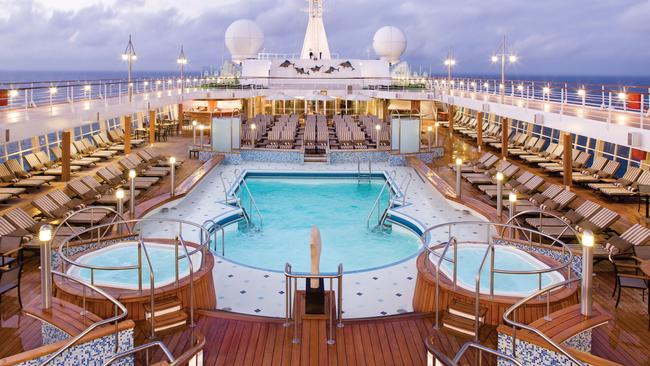
The family contacted the chief investigator with the NT Police and were assured that Jackie’s tissue and blood samples could be sent to the US. Then, suddenly, the NT Police went silent on the issue. “My phone messages were never returned, my emails were never returned; it was as if somebody slammed the door on us,” says Mike.
Faced with an unexplained silence on the other side of the world, the family became desperate. They contacted the US Consulate in Melbourne. “It was only when the consulate rattled some cages [in the Territory] that the [NT] Police came back to us and said they were going to get everything ready to ship,” says Mike. “That’s when we found out the truth. One person up there in the Northern Territory pathology office did not want their work [on Jackie] reviewed. That person had refused to release his work to the police. That only changed when the US Consulate intervened.”
After more than six months of fruitless pleading, the family received a contrite letter from the NT policeman in charge of Jackie’s investigation. “I acknowledge multiple messages from you ... we have failed to provide you a professional level of service, this I acknowledge,” he wrote. “Without making excuses both the coroner and myself were provided with misleading information from the NT Forensic Pathologist’s office. The responsible technician sat on multiple requests and at the same time informed us on our inquiries that our request for samples had been actioned. That person has been dealt with by the Coroner’s office … the samples are ready to be sent … I acknowledge the frustration we have caused.”
When Kathy received this email — the first admission in almost two years since Jackie’s death that the family had been treated badly by the Territory authorities — she burst into tears. “I cried for the months of pain and suffering that I and my family have endured since the Australian investigation closed, just trying to get this evidence and information shipped to the US so that we could attempt to find out more completely what caused the death of our beloved daughter Jackie,” she wrote to friends. “No family should have to go through what we have gone through.” Yet worse was to come.
In March 2015, the package of Jackie’s samples was finally shipped to the Groveland police department. By this stage the family had moved to garner some powerful supporters in the US, including Massachusetts Democrat Senator Elizabeth Warren, a possible future presidential nominee. “I understand the frustration you must be feeling regarding the extremely long amount of time it has taken to receive a response from the police department in the Northern Territory,” Senator Warren wrote to them. “We have relayed your request to the Federal Bureau of Investigation and asked for their attention in this matter.”
The Kastrinelis family also made contact with Mark Brimble, whose former wife Dianne had died in 2002 after being given drugs by a group of fellow guests in a cruise ship cabin. After the highly publicised case that followed her death, Brimble was eventually awarded a Medal of the Order of Australia for his work in promoting cruise ship safety. “We found Mark after a family friend had stumbled upon a cruise ship victim advocacy group,” says Mike. “He has offered to travel to Darwin and advocate for us with the coroner and NT police if necessary to assist us with getting information.”
Eventually, the FBI agreed to examine Jackie’s samples for the Kastrinelis family.
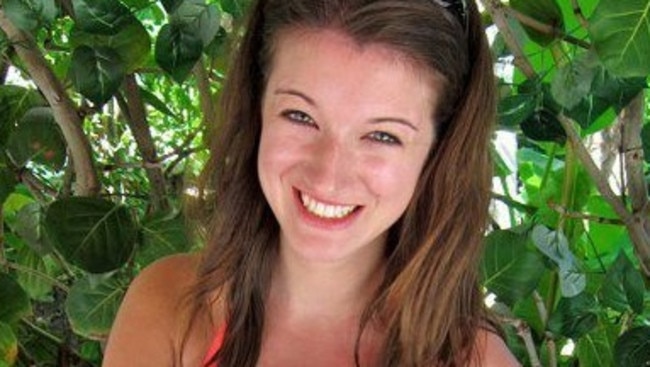
Before the sample package had been sentfromDarwin, Mike had discussed with NT Police what would be needed. As well as tissue samples, the family required blood samples and autopsy photos. Mike says the NT Police agreed to this. The blood was the most crucial item because that would allow testing of any other possible date rape drugs in Jackie’s system. But when the FBI opened the package and itemised the contents, it found the package contained the tissue samples but not the crucial blood or autopsy photos. This meant the FBI could not properly examine the cause of Jackie’s death. To make matters worse, NT Police were adamant the blood samples had indeed been sent as part of the package.
Mike sits at the dining room table in the family home and plays glumly with the FedEx invoice that arrived with Jackie’s package. “There is a slip showing contents and weight,” he says, holding it up. “What arrived here was not on that slip either by weight or description. It looks to me that at some point before they sent it someone has removed the blood from the package.”
The Kastrinelis family has no reason to lie about these events and would pay dearly to discover what happened to Jackie’s blood sample, which they believe is still in Australia. “There are no other indicators [to what happened to Jackie] except her blood, and now they have just taken that away from us,” says Mike, his voice faltering slightly for the first time.
In March last year the couple lodged a complaint with the Commonwealth Ombudsman about the conduct of NT Police and the coroner’s office, only to be told that the office had no jurisdiction over the matter. They then lodged the same complaint with the office of the NT Ombudsman, which also replied that it had no jurisdiction in the matter and suggested that the family contact the coroner’s office — one of the targets of the Kastrinelis family’s complaint.
In desperation, they wrote to NT Attorney-General Natasha Fyles last December. “We are a family in crisis trying to find some level of closure in the death of our beloved daughter,” they wrote. “We respectfully request your assistance to reopen the investigation into the death of our daughter Jackie as we have credible reason to believe that both the circumstance preceding her death, as well as the cause of her death as reported in the Northern Territory Coronial Investigative Report, are in error.”
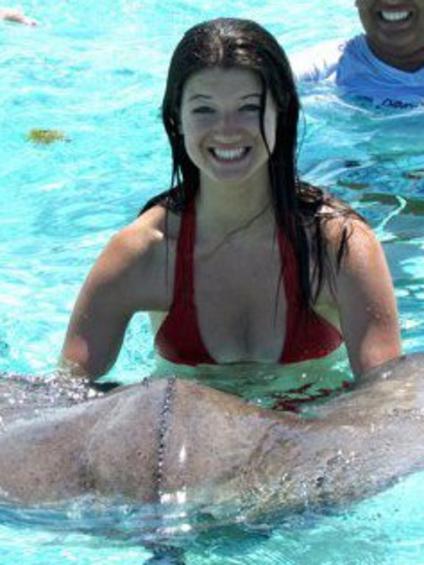
On June 8 this year, Fyles wrote back saying that the Northern Territory Commissioner of Police had “confirmed” that Jackie’s blood samples had been sent to the US and that neither NT Police nor the departments of Health, Attorney-General or Justice held any remaining samples.
Fyles suggested that it was the Groveland Police, not the NT Police, who had lost the blood samples. There was cause for this claim. Groveland police chief Jeff Gillen had mistakenly emailed NT Police in 2016 to say the package with the blood had arrived. But what he meant was that the package had arrived. He insists he never opened it to see if the blood sample was included. Gillen emailed NT Police in September this year to clarify his mistake and confirm that neither Jackie’s blood nor the autopsy photos had arrived in the US. Meanwhile, Fyles had referred the matter to the NT chief minister and minister for police, Michael Gunner.
On July 20, Gunner’s police adviser Fred McCue told the family via email that Gunner had “immediately sought a written brief” from NT Police about the whereabouts of Jackie’s blood sample. At the time of writing, the Kastrinelis family had not heard from the chief minister, who did not respond to detailed questions from The Weekend Australian Magazine about the case. NT Police also declined to respond to questions about its handling of the case.
Fyles did respond, saying that under the Coroners Act she has no power to direct a coroner to order an inquest or to order police to reopen an investigation. “As such, it is important I do not comment on whether an inquest should or should not occur.” But she says she has forwarded to the coroner the letter from the Kastrinelis family outlining their concerns. The coroner’s office declined to comment on questions submitted to it by The Weekend Australian Magazine and has not made any move to call an inquest into Jackie’s death.
Then, on October 2, Kathy received an email from the NT Police detective who oversaw the investigation. He informed her that in view of US police chief Gillen’s claim that the blood never arrived, it may now never be found. “I acknowledge it is likely lost, unfortunately this is outside my control,” he writes. He has now sent the autopsy photos.
So, after more than four years, the Kastrinelis family is still trapped in a bureaucratic nightmare. With Jackie’s blood samples having apparently vanished, they can only wonder what really killed their daughter. They are suspicious about Roman, the Ukrainian sax player, but have no way of knowing if foul play was involved. “We don’t know what to think,” says Kathy when asked if she suspects him. “It doesn’t feel good.”
Says Mike: “Law enforcement here told us, ‘An ex-boyfriend and he was the last one to see her alive? Oh come on’.”
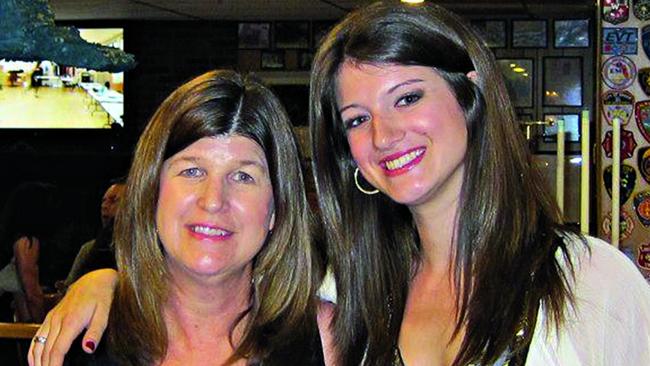
Adds Kathy: “They didn’t really bother finding out who he was. The worst would be if somebody had given her something that caused her death. I suspect legally, because we’ve waited so long, there would be no repercussions but at least we would know what happened.”
The family received a note from one of Jackie’s fellow cast members on the Seven Seas Voyager, Courtney Brady. “Was [Roman] just standing in the hallway to see [Jaanus] walk Jackie to her room? Or did he follow them out of the bar?” she writes. “I have to say, Kathy, that actually makes me sick to think further into it … we hardly knew these people we were on the ship with. If this was foul play, who were we walking the halls with? I hate thinking about it.”
Mike worries that the investigation into Jackie’s death was underdone because police simply assumed she was a stereotypical cruise ship party girl and that drugs or booze must have killed her. By the time they realised otherwise, it was too late. The ship had sailed, taking a possible crime scene along with it. “Did they just profile our daughter as some sort of party girl, you know, drugs and alcohol, 24 years old on a cruise ship? Did they do that to her?” he asks. “And then the toxicology report comes back with nothing. And they are like, ‘Now what do we do?’”
In their house, on a quiet suburban street, Jackie is still ever-present. Her face smiles out from photos in most rooms, and a closet in her old bedroom is full of her clothes and other personal treasures that Mike and Kathy can’t yet bring themselves to touch.
“The journey has been really hard,” says Kathy as she walks through the house. “When you lose a child your brain tells you your child is dead but the rest of you says, ‘No, this can’t have happened’. On top of this you realise you have not been told the truth about what happened.”
Mike sits in silence, choosing his words carefully before he speaks. “There is no such thing as total closure — this is a life-changing event and we are in a new life,” he says. “But if we could just get some answers about Jackie’s death it would give us just a little bit of closure, which would mean an awful lot and would help us go on.”

